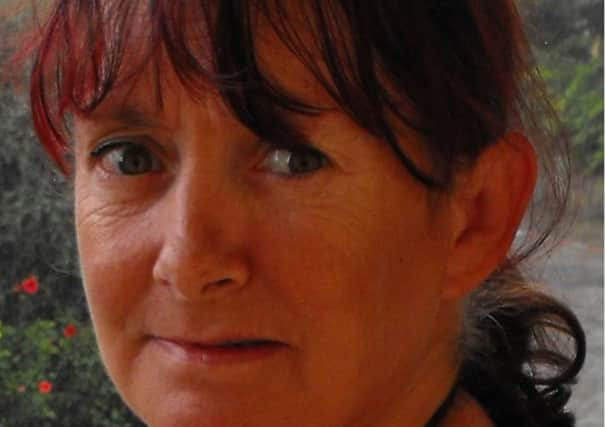Jean Campbell murder: ‘God told me to plead guilty’


Paul Ward spoke to his mother during a phone conversation while he was on remand at Barlinnie on 10 August 2014.
He also told her: “I’ve been hearing stuff in my head. I think I might have hit her once. I don’t know. I just can’t remember.”
Advertisement
Hide AdAdvertisement
Hide AdDetails of the recorded phone call were revealed during an examination of facts into the death of Mrs Campbell, 53, at the High Court in Glasgow today.
Ward, 21, is accused of murdering 53-year-old Mrs Campbell by repeatedly striking her on the head and body with a dog lead and by means unknown inflicting further injuries at Cranhill Park, Glasgow, on 13 December 2013.
He is deemed unfit to stand trial and is currently in the State Hospital. At the end of the examination of facts, judge Lord Matthews will determine whether Ward committed the offence.
The court heard that Ward told psychiatrists that God had told him to plead guilty. It was also revealed that Ward’s family home was bugged by police for a month and nothing was heard to connect him with the death of Mrs Ward.
Psychiatrist Dr Isobel Campbell was asked by defence QC Donald Findlay: “What reliance can be put on this conversation with his mother.” She replied: “I think it is difficult to put much reliance on the conversation.”
Dr Campbell told the court that she had met Ward on a number of occasion and said he is likely to be suffering from a schizophrenic illness.
FOLLOW US
SCOTSMAN TABLET AND MOBILE APPS
She said that he was moved from Barlinnie to the State Hospital for treatment last year after displaying increasingly bizarre behaviour.
The court heard that Ward refused to drink water, although he did take Coca-Cola, would be mute for days apart from shouting out random words and was convinced that police and prison officers were involved in a conspiracy against him. The court heard that Ward was reading the Bible so much that the guards took it away from him.
Advertisement
Hide AdAdvertisement
Hide AdDr Campbell added: “He also thought his thoughts were being breathed out and other people could access them.”
She was asked what Ward had told her when she spoke to him and replied: “What he described is a particular experience where he was in his cell. It was dark and there was a sudden shaft of light and a cross appeared on the cell wall. He had a feeling of euphoria. He interpreted this as having some profound significance.
“He has described hearing a voice saying: ‘Did you do it’ and him replying: ‘I don’t know’ and then having an extraordinary feeling of joy.”
Mr Findlay asked Dr Campbell: “It appears that this young man now believes he had been told by God that he should be pleading guilty to this.” She said: “That is my understanding.”
She added: “He appears to have difficulty knowing what is memory and what is what other people have told him.”
Mr Findlay said: “His home was bugged for a month and he says nothing. He did not say anything about doing this and after he was arrested he protested his innocence. What reliance can we place on him then saying God has told him to plead guilty?”
Dr Campbell replied: “I think that little reliance can be placed on it.”
The psychiatrist was asked if she thought that Ward was play acting and said: “I think that’s extremely unlikely.”
Advertisement
Hide AdAdvertisement
Hide AdMrs Campbell’s body was found before 8am on 14 December 2013 by her husband John, a nightshift worker, who was worried when he came home to find her and their German Shepherd dog Kai missing.
He searched where she normally walked the dog and found her body and the dog nearby.
The trial before judge Lord Matthews continues.
SEE ALSO